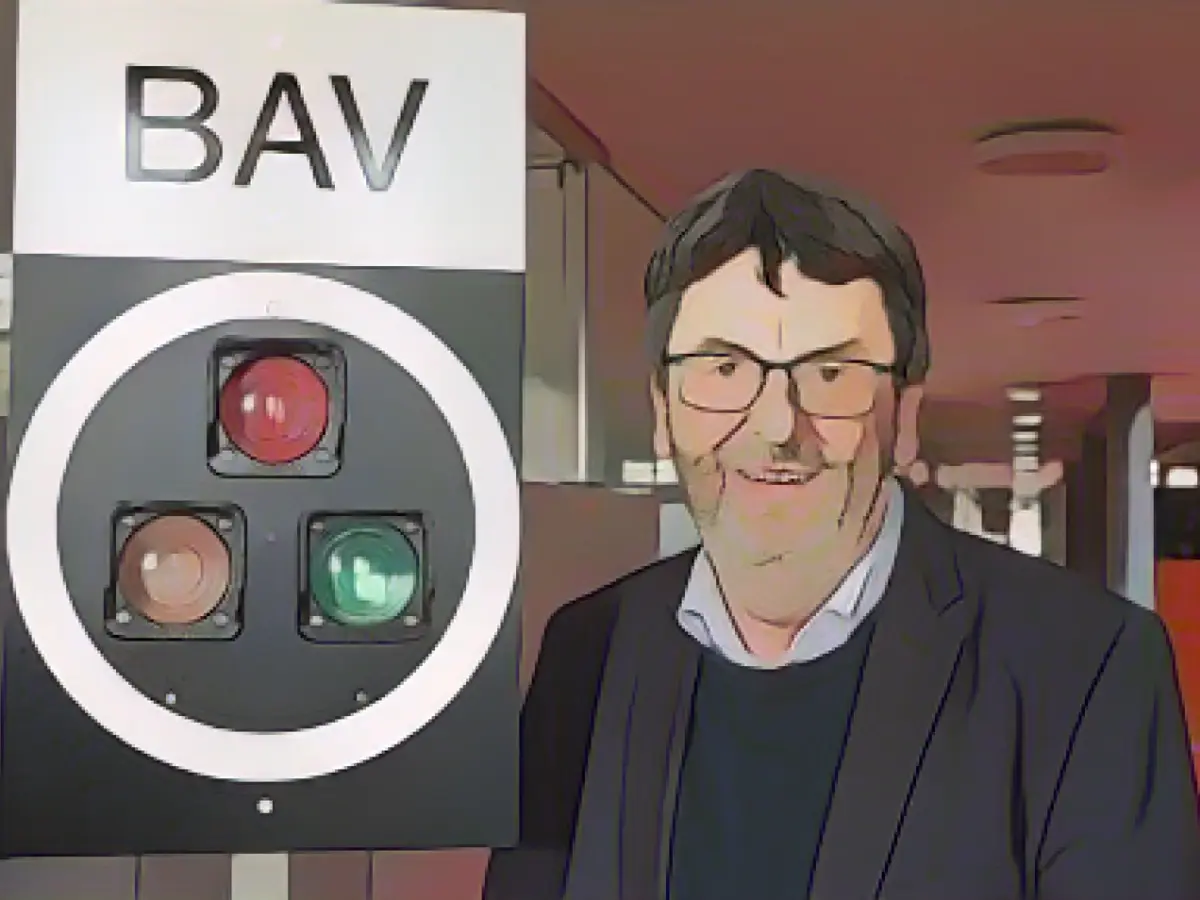Traffic - Swiss tutoring for the railroads: "problem child" Germany
The frustration of the Swiss with Deutsche Bahn can be felt in cross-border rail traffic."Germany is our problem child," says Peter Füglistaler, Director of the Swiss Federal Office of Transport, to the German Press Agency.
Every second train from Germany is now not on time. "From our point of view, this is unacceptable," he says. "A train simply has to be 85 to 90 percent on time." That's what the management of a railroad company is there for, "and they also have to deliver".
Advice from Switzerland
Switzerland has reduced the number of cross-border connections via Basel. For Deutsche Bahn trains that are more than 15 minutes late, the journey ends in Basel. Instead, the Swiss railroads (SBB) will use their own trains, which will run on time from the border. Passengers on delayed trains have to change and take the next train. SBB achieves 92.5 percent punctuality, whereby a train is considered unpunctual if it is three minutes late.
Switzerland offers Germany advice. Another meeting is planned for January, says Füglistaler. "How do I finance the infrastructure? What are the criteria that management has to adhere to in order to improve punctuality, safety and cleanliness? These are elements that we discuss." Switzerland started this 30 years earlier than Germany. In Switzerland, rail infrastructure is not about profits, but about high benefits for the economy and society.
With a length of 33,500 kilometers, the German rail network is almost seven times as long as that of Switzerland. The individual connections are also longer in Germany. The German network is very complex - with numerous junctions and often passenger and freight traffic on the same routes. A large part of the network expansion and route renovation is financed by the federal government. However, there is a lot of catching up to do.
"A good rail system costs money"
Switzerland has a rail infrastructure fund that is financed by VAT and road tolls, among other things. It therefore has planning security for several years. According to the Allianz pro Schiene association, Switzerland invested around 450 euros per capita in rail infrastructure in 2022, while Germany invested 114 euros - less than many neighboring countries and the UK. "A good rail system costs money, but it is also used," says Füglistaler. According to the Federal Office of Transport, people in Switzerland travel 2464 kilometers by train per capita per year, compared to 1206 in Germany.
Füglistaler views the push for ever faster trains with skepticism. Switzerland tends to focus on capacity rather than speed. "A double-decker train has twice as many seats," he says. "It takes a little longer, but it transports a lot of people." Of course, Germany has different dimensions and high-speed trains make more sense there. "But 250 kilometers per hour might be enough, it doesn't have to be 360 kilometers per hour. An ICE at 360 is attractive for a few people. A double-decker train at 250 kilometers per hour that runs frequently and punctually is attractive to many." In Switzerland, trains usually run at a top speed of 200.
In addition, Switzerland relies on "lean connections" instead of long-distance trains. This means that individual delays do not immediately affect the entire system. "It's normal for us to change trains," he says. "But we also know that the connecting train usually arrives in a few minutes. That only works in a punctual system."
Read also:
- Why there is still no EU funding for green Saar steel
- 3 billion Saar Fund is unconstitutional
- Lack of snow also opens up new opportunities for winter tourism
- Abrupt end to e-car subsidies
- The German Press Agency reported the frustration of Swiss authorities with the punctuality of German trains in cross-border rail traffic, labeling Germany as a "problem child."
- Peter Füglistaler, Director of the Swiss Federal Office of Transport, proposes advice to Deutsche Bahn, suggesting improvements in punctuality, safety, and cleanliness.
- Switzerland has implemented measures to combat delays in cross-border connections via Basel, ending journeys for Deutsche Bahn trains that are more than 15 minutes late and instead using their own on-time trains.
- The German rail network, with its complexity and length, requires significant investments from the federal government, while Switzerland has financing security through a rail infrastructure fund.
- Füglistaler advocates for a focus on capacity over speed in Switzerland, emphasizing the value of double-decker trains with more seating and frequent, punctual service.
- Switzerland employs a strategy of "lean connections" instead of long-distance trains, minimizing the impact of individual delays on the overall rail traffic.
Source: www.stern.de








